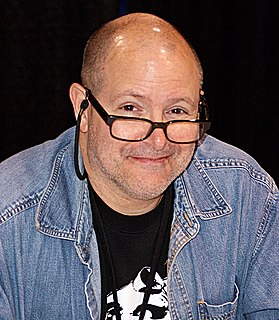A Quote by Mike Mignola
I'm thinking about color all the time. Sometimes even as far back as the plotting sequence.
Related Quotes
About 85 per cent of my "thinking" time was spent getting into a position to think, to make a decision, to learn something I needed to know. Much more time went into finding or obtaining information than into digesting it. Hours went into the plotting of graphs... When the graphs were finished, the relations were obvious at once, but the plotting had to be done in order to make them so.
For many years, I have been moved by the blue at the far edge of what can be seen, that color of horizons, of remote mountain ranges, of anything far away. The color of that distance is the color of an emotion, the color of solitude and of desire, the color of there seen from here, the color of where you are not. And the color of where you can never go.
I've always felt the portrait is an occasion for marks to happen. I've never viewed the portrait as about the sitter. Even when I go to the National Portrait Gallery, I'm not thinking about the sitter; I'm thinking about how the artist chose that color or that highlight. It becomes about the time, place, and context.
There's a clean simplicity to the plotting of 'Sinister,' whether you like it or not. And the scares are deliberate and even heavy-handed in a way. There's not a lot of sophistication or nuance in the plotting and not much restraint in the scares - and that's a part of what makes the movie accessible.
I really like the interplay between thinking of text as ephemeral and thinking of it as a concrete, physical thing. With almost anything that I write, I'll stay completely immersed in the electronic text of it for a period of time and in another period, I'll stay immersed in it as a physical thing that can cut your skin. So with the apocalypses, I had them taped all over the wall and they had codes on them. Sometimes I would color code them in terms of thematic elements, sometimes in terms of voice, sometimes visual forms or images.








































